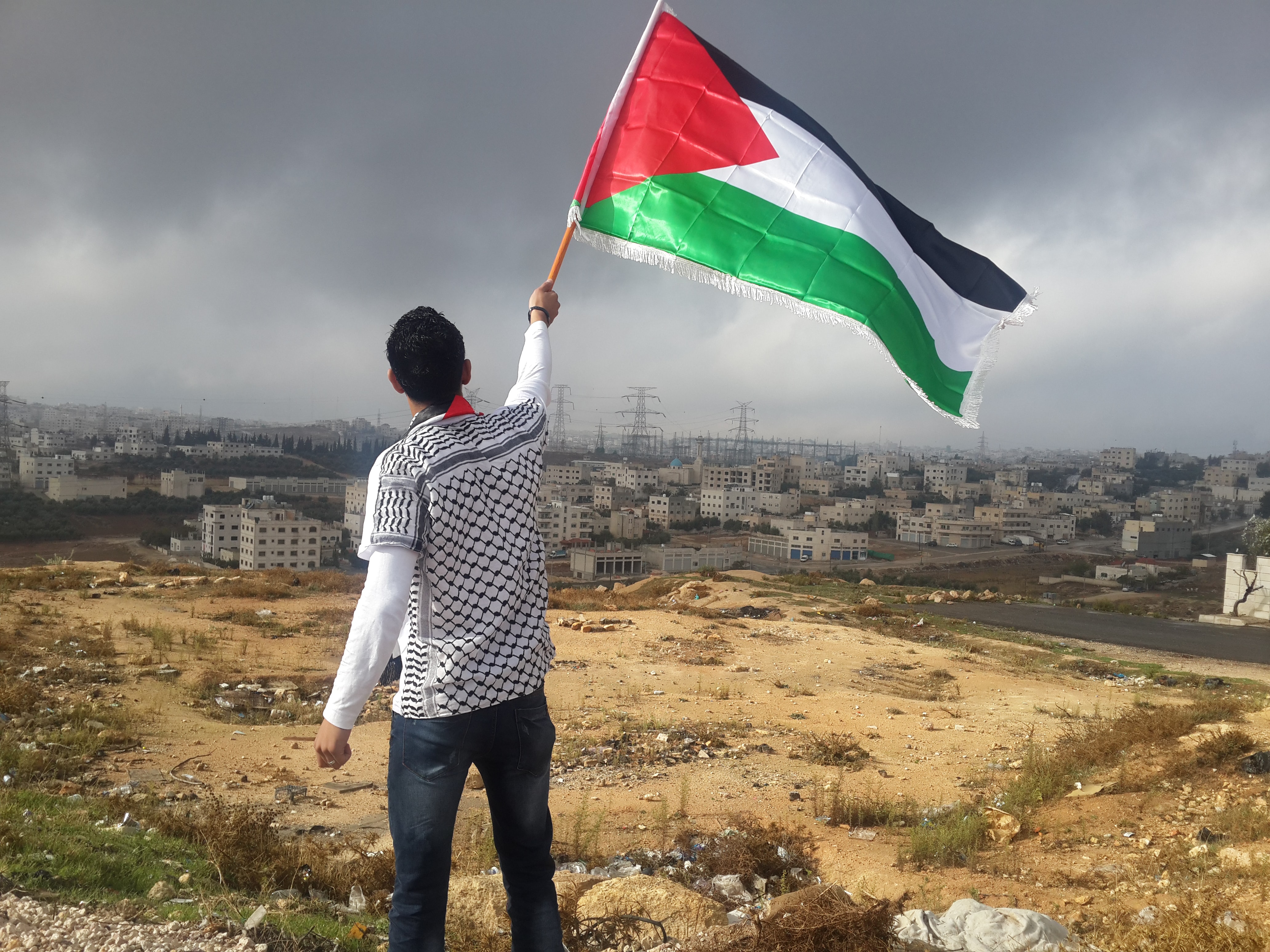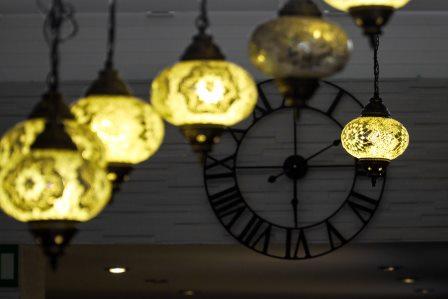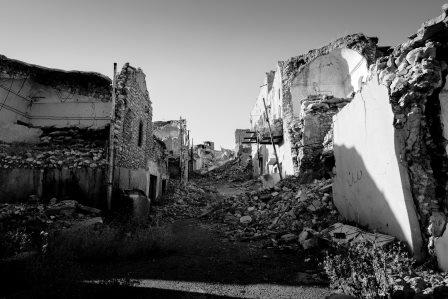Breaking
- MENU

The recently signed Abraham Accords, which normalized Israel’s relations with the UAE and Bahrain, have proven historic even in ways not intended by its signatories. For one, the agreements have so incensed most Palestinian factions that they have decided to set aside their longstanding internecine differences and put up a rare united front against decision of the UAE and Bahrain to normalize relations with Israel. The decision for an intra-Palestinian reconciliation came at a September 3 meeting headed by Palestinian Authority President Mahmoud Abbas, Hamas’ Ismail Haniyeh, Islamic Jihad’s chief Ziyad Al Nakhala, as well as senior leaders of other important Palestinian groups.
Fatah, Hamas Patch Up
The two main Palestinian factions Hamas and Fatah have been bitter rivals since 2007, when Hamas threw out Fatah’s security forces from Gaza following months of tension. However, the two sides are now working to overcome their differences in order to counter what Husam Badran, a member of Hamas’ political bureau, calls “a treacherous stab in the back of the Palestinians” by some Arab states. The meeting decided to set up three committees: one focusing on forming a unified leadership of all major Palestinian groups to start popular struggle against the Israeli ‘occupation’, the second intending to build a common vision for ending the division between Gaza and the West Bank, while a third for strategizing the revival of the Palestinian Liberation Organization (PLO).
Following the meeting, Hamas chief Ismail Haniyeh left for Lebanon where he met Hezbollah leader Hasan Nasrallah to discuss ways of “countering the Zionist plans”. The leaders also stressed the need to reiterate the “axis of resistance” against the state of Israel. The Hamas chief was also accorded a hero’s welcome during the visit to Ain al Helweh, the largest Palestinian refugee camp in Lebanon. According to UNRWA around 470,000 Palestinian refugees currently live in Lebanon. Unity among Palestinian groups is the result of a near spontaneous outburst of popular protests in Palestinian territories that followed the August 13 Israel-UAE normalization deal announcement by US President Trump.
‘Day of Rage’ Protests
A week after the announcement an estimated 2,000 Palestinians took part at a rally in Turmusaya, a village in the north of West Bank, “Today we tell the world that we are united against ‘the deal of the century,’ annexation and normalization,” Palestinian Authority Prime Minister Mohammed Shtayyeh told the rally in the village.
Protests continued sporadically until the day Israel, the UAE and Bahrain signed the normalization agreements in Washington on September 15, 2020. That day was itself declared a ‘day of rage’ by Palestinian factions, who urged supporters of the Palestinian cause to demonstrate in Palestinian areas, refugee camps as well as in front of embassies of the US, Israel, the UAE, Bahrain and around the world. However, the public response to this call was mixed and the number of protests have fizzled out since then.
Palestinian Setback at Arab League
In fact, a bigger setback awaited Palestinian leaders when they attempted to censure the UAE over the normalization agreement at the Arab League. In a video conference of the Arab League members’ foreign ministers that was held on September 9, 2020, Palestinian representatives presented a proposal for the bloc to issue a formal condemnation of the Abraham Accords, as it seemed to be in breach of the 2002 Arab Peace Initiative. However, after hours of deliberations the Arab League dropped the draft resolution that condemned the Israeli-UAE agreement, even though the final communique maintained the League’s commitment to the 2002 Arab Peace Initiative, the two-state solution, and the land-for-peace principle.
Writing for the news agency Media Line, Uri Cohen names the countries that opposed the Palestinian draft resolution: “Countries such as Jordan, Egypt, Sudan and all Gulf nations elected to vote down the draft, instead passing an alternative resolution that holds no condemnation of the UAE’s act. Still, Palestine did not go home empty-handed, as it managed to extract a statement from Saudi Foreign Minister Faisal bin Farhan Al Saud reinforcing the Saudis’ commitment to the establishment of a Palestinian state based on the pre-1967 borders with east Jerusalem as its capital.”
Even Ahmed Abul Gheit, the Secretary General of the League refused to condemn the Israel-UAE normalization deal but stressed that the Palestinian cause was and remains an issue for Arab consensus. He further added that every Arab country has the “sovereign and indisputable right” to conduct its foreign policy the way it sees fit.
In protest of this stance of the Arab League, Palestine quit its current chairmanship of Arab League meetings. Palestinian Foreign Minister Riyad Al Maliki was supposed to chair Arab League meetings for the next six months, but he announced that Palestine no longer wanted that position stating that “Palestine has decided to concede its right to chair the League’s Council [of foreign ministers] at its current session. There is no honour in seeing Arabs rush towards normalisation during its presidency.”
The Pivot to Turkey
With Palestinian efforts to drum up international support for their cause tailing off without much traction, Fatah and Hamas have started shoring up ties with Turkey and Qatar that opposed Arab normalization of ties with Israel. On September 21, Palestinian President Mahmoud Abbas spoke with his Turkish counterpart Recep Tayyip Erdogan to thank him for his continued support to the Palestinian cause. It is reported that the two had held several exchanges on phone in the past weeks to devise a strategy for reviving the Palestinian cause.
For his part, Hamas leader Ismail Haniyeh had earlier visited Ankara and met Erdogan on August 22, where they reportedly discussed ways to end internal Palestinian division. A month later, Erdogan minced no words in his speech at the 75th United Nations General Assembly meeting, where he said, “The occupation of Palestine is a bleeding wound,” and that “Israel is constantly increasing its audacity in the holy sites in Jerusalem.”
Conclusion
The Palestinian groups have started uniting under a hard-line position against the decision of most Arab states that support normalizing relations with Israel. In pursuit of this approach, even moderate Palestinian groups like Fatah are joining forces with more radical Palestinian groups like Hamas and Islamic Jihad, and are looking for support from non-Arab powers like Turkey and Iran. It remains to be seen whether a possible rapprochement between Israel and the Arab states is sustainable in the absence of an Israel-Palestine peace settlement.
Note: This article was originally published in Manohar Parrikar Institute for Defence Studies and Analyses, West Asia Watch Vol 3, Issue 3, July-September 2020 and has been reproduced under arrangement. Web Link
As part of its editorial policy, the MEI@ND standardizes spelling and date formats to make the text uniformly accessible and stylistically consistent. The views expressed here are those of the author and do not necessarily reflect the views/positions of the MEI@ND. Editor, MEI@ND: P R Kumaraswamy

Dr. Adil Rasheed joined MP-IDSA as Research Fellow in August 2016. Before that, he was been a researcher and political commentator in various international think tanks and media organizations for over 17 years, both in the United Arab Emirates and India. He was Researcher at the UAE’s premier think tank The Emirates Center for Strategic Studies and Research (ECSSR) for eight years (2006-14). He is the author ISIS: Race to Armageddon (2015) and co-editor of Indian Ocean Region: Emerging Strategic Cooperation, Competition and Conflict Scenarios (2015). Email: dilrasheed@gmail.com

Jatin Kumar is a Research Analyst in Manohar Parrikar Institute for Defence Studies & Analyses (MP-IDSA) in West Asia Centre. He holds a Ph. D degree from the Centre for West Asian Studies, Jawaharlal Nehru University for his doctoral thesis on Israel’s National Security Policy Making after Oslo. His areas of interests are contemporary Middle East, especially Israel. He is a frequent contributor on various strategic issues to online publications and newspapers. He has published articles with Contemporary Review of Middle East and Strategic Analysis and contributed chapters in various edited books. For MEI he prepared India Speaks (July 2014-September 2017), Pakistan Watch (March-May 2018) and India Watch (October 2018-December 2019).

Idiomatically speaking, a ‘perfect storm’ refers to the deadliest combination of a multi.....

It took less than a month after losing its last bastion of Baghouz in Syria on 23 March 2019 for ISI.....
